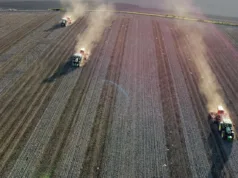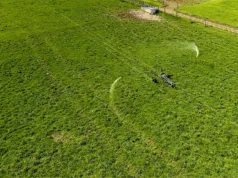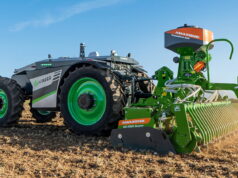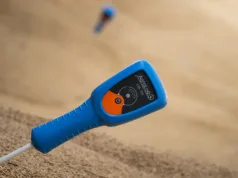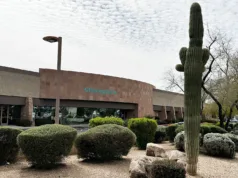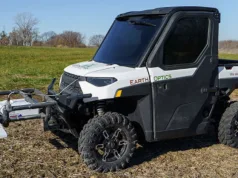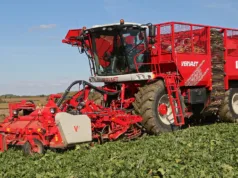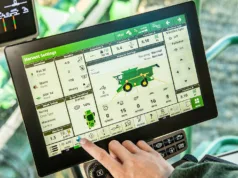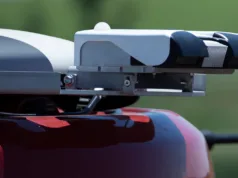Claas UK has become one of the first manufacturers to establish a network of RTK masts to provide farmers with a cost-effective means of benefitting from the high-accuracy GPS correction system.
Following a successful trial last summer, Claas has bought four licences that will allow it to potentially install the masts anywhere in the UK. The move is part of the company’s long-term commitment to GPS steering systems
Initially 11 masts have been installed to provide RTK coverage for about 2,500,000ha throughout Norfolk, Suffolk, Essex, Lincolnshire and part of Leicestershire. In the next phase, starting this spring, masts will be installed to cover Kent and the plan is to then move westwards.
Depending on the demand from customers, Claas will also look at the feasibility of installing masts elsewhere in the UK. Subject to topography, each mast will provide RTK coverage across a 20-30km radius.
“For a farmer to invest in their own mast and receiver can be expensive, so establishing our own network will provide farmers with a far more cost-effective means of benefitting from the accuracy that RTK provides,” Claas’ precision farming product manager, Edward Miller, said. “To use the network, customers pay an annual subscription, which will provide access to the whole network, not just a single mast. This will be of particular benefit to contractors or farmers with different blocks of land that maybe straddle a couple of masts.”
Aside from providing an RTK signal for Claas’ own GPS Pilot steering systems, the network can also be accessed by those using an Omnistar HP signal with a Trimble receiver.
The RTK (Real-Time Kinematic) system works by using a base station placed on a known, surveyed point that transmits correction signals via radio to dual-frequency GPS equipped machines that can pick up signals from both an RTK mast and from satellites. Accuracy of 2-3cm is possible with the system.
For further information visit: www.claas.co.uk.


